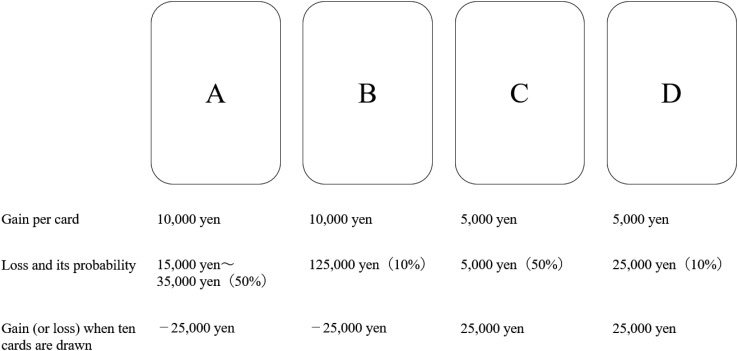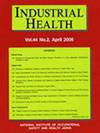Is decision-making influenced by interactions between extended wakefulness and weak emotional stressors? An experimental study.
IF 1.8
4区 医学
Q3 ENVIRONMENTAL SCIENCES
引用次数: 0
Abstract
In this study, we aimed to determine whether 21-hour continuous wakefulness decreases performance in the Iowa Gambling Task and examine the effect of the interaction between a weak emotional stressor and prolonged continuous wakefulness on the decision-making process, as measured by the Iowa Gambling Task. Approximately half of 38 healthy college students were in the sleep deprivation condition (they performed the task at 4:30 a.m.); the remainder were in the daytime condition (they performed the task during the day). The participants in each sleep condition were further divided into non-exposed and exposed to an emotional stressor via a social exclusion procedure before the task, with the Iowa Gambling Task score as the dependent variable. In the sleep deprivation condition, performance in the final block of the task was significantly worse in the group with an emotional stressor than the group without. There was no main effect of sleep conditions or emotional stressors on the task performance in either block. The results of this study suggest that even 21 hours of continuous wakefulness, which can occur in daily work life, may prevent appropriate learning in people exposed to an emotional stressor, even if the stress caused due to it is low.


决策是否受到长时间清醒和弱情绪压力源相互作用的影响?一项实验性研究。
在这项研究中,我们旨在确定21小时连续清醒是否会降低爱荷华赌博任务的表现,并检验弱情绪压力源和长时间连续清醒之间的相互作用对决策过程的影响,正如爱荷华赌博任务所测量的那样。38名健康的大学生中大约有一半处于睡眠剥夺状态(他们在凌晨4:30完成任务);其余的人在白天的条件下(他们在白天执行任务)。以爱荷华赌博任务得分为因变量,通过任务前的社会排斥程序,将每种睡眠状态下的参与者进一步分为未暴露和暴露于情绪压力源的两组。在睡眠被剥夺的情况下,有情绪压力的小组在最后一项任务中的表现明显比没有情绪压力的小组差。在两组中,睡眠条件或情绪压力源对任务表现都没有主要影响。这项研究的结果表明,即使是在日常工作生活中连续21小时不睡觉,也可能会阻碍处于情绪压力源下的人进行适当的学习,即使这种压力引起的压力很低。
本文章由计算机程序翻译,如有差异,请以英文原文为准。
求助全文
约1分钟内获得全文
求助全文
来源期刊

Industrial Health
医学-毒理学
CiteScore
3.40
自引率
5.00%
发文量
64
审稿时长
6-12 weeks
期刊介绍:
INDUSTRIAL HEALTH covers all aspects of occupational medicine, ergonomics, industrial hygiene, engineering, safety and policy sciences. The journal helps promote solutions for the control and improvement of working conditions, and for the application of valuable research findings to the actual working environment.
 求助内容:
求助内容: 应助结果提醒方式:
应助结果提醒方式:


